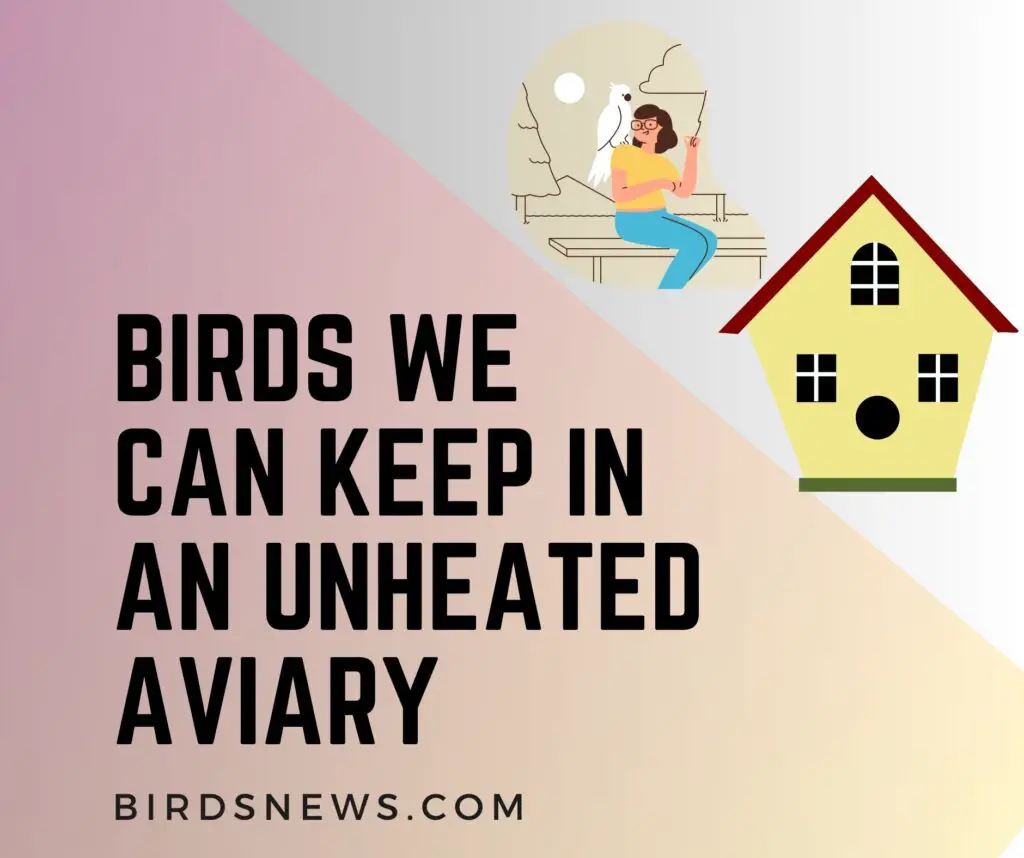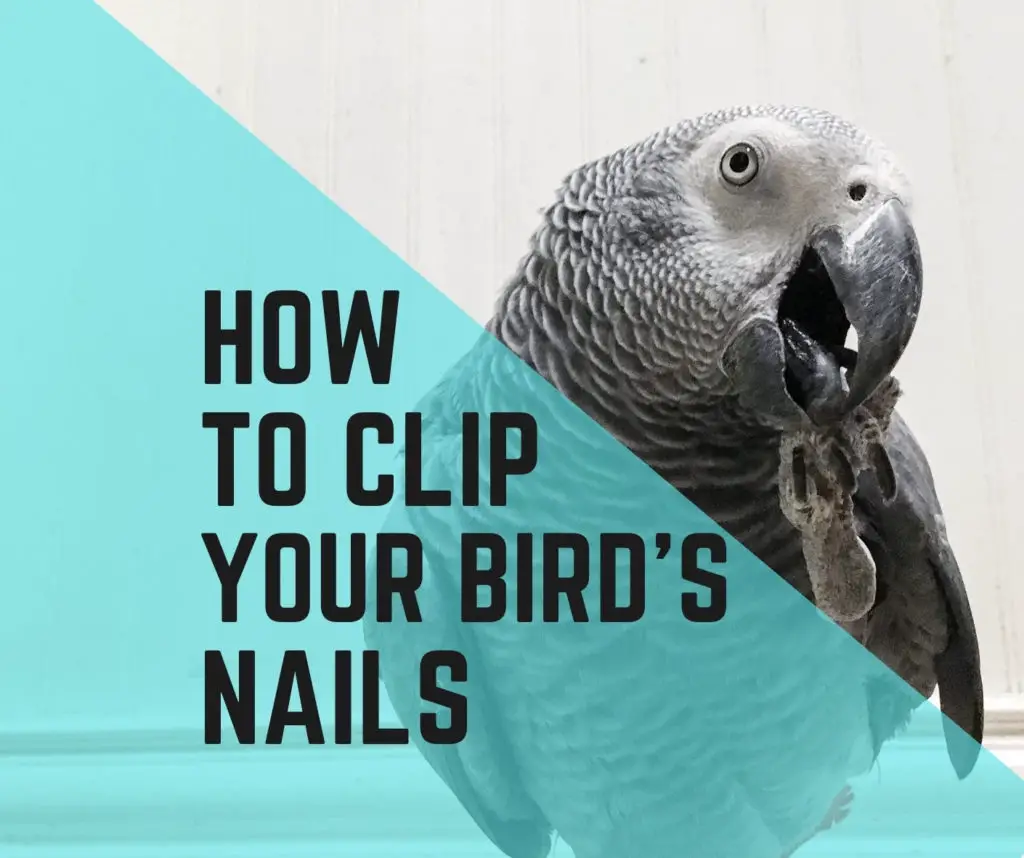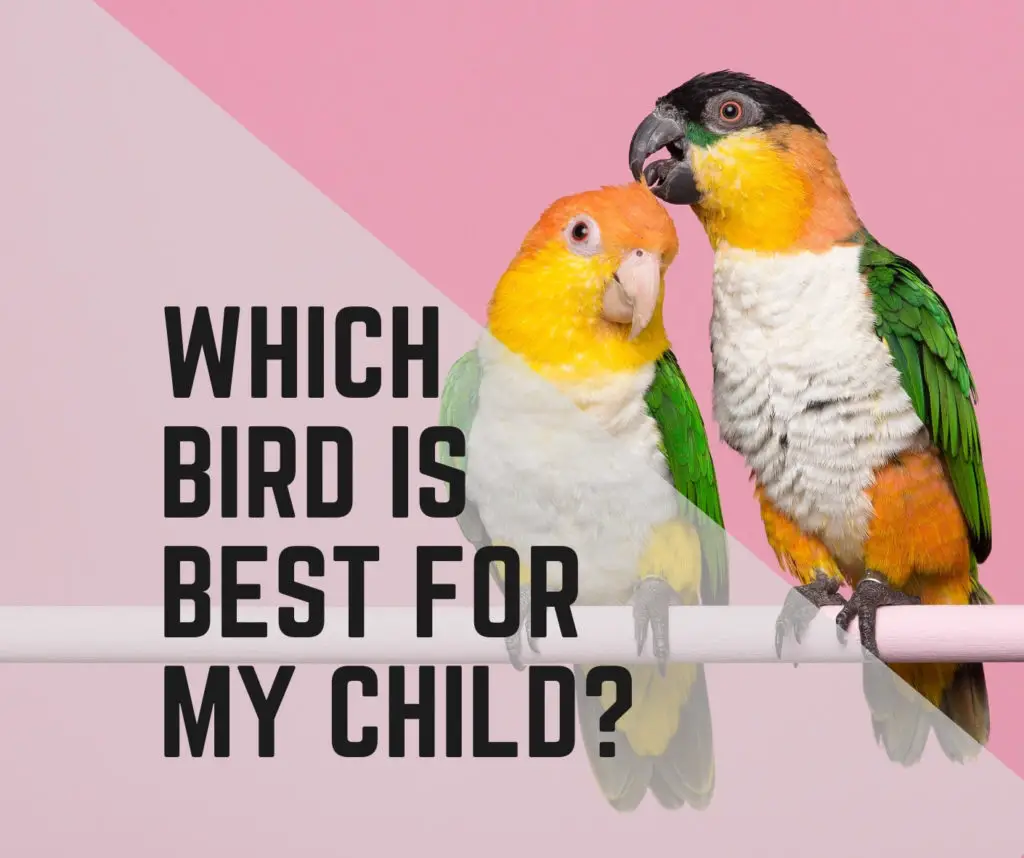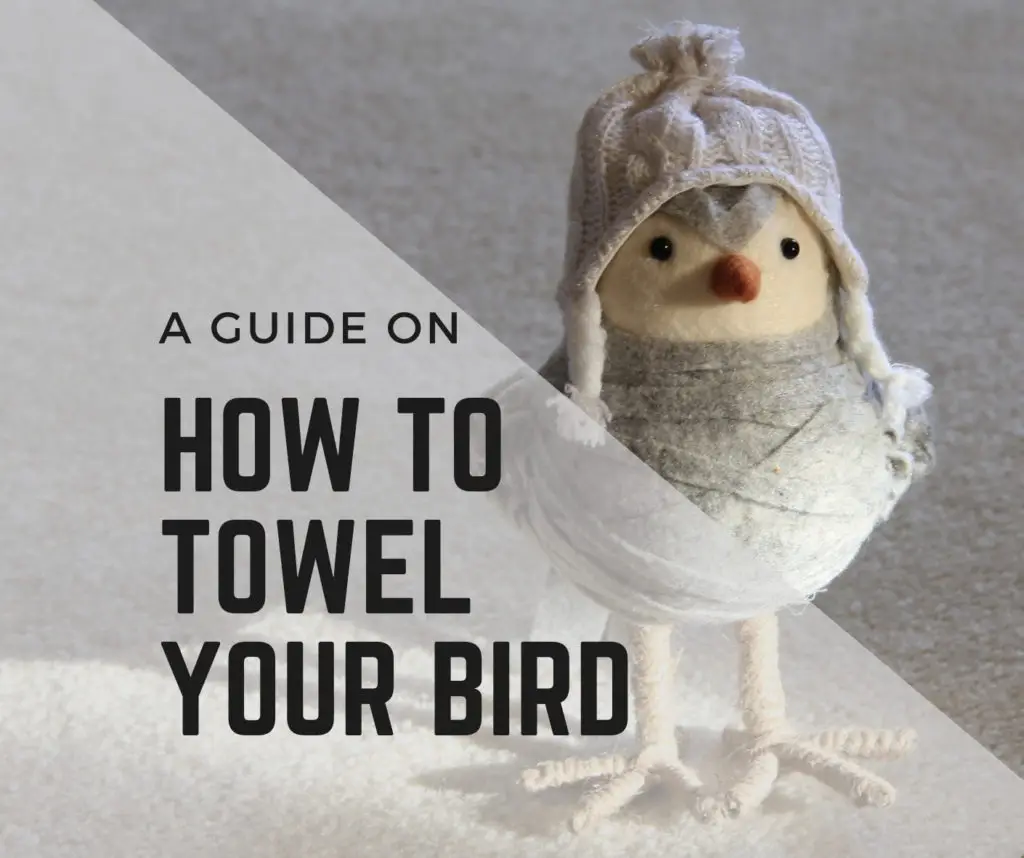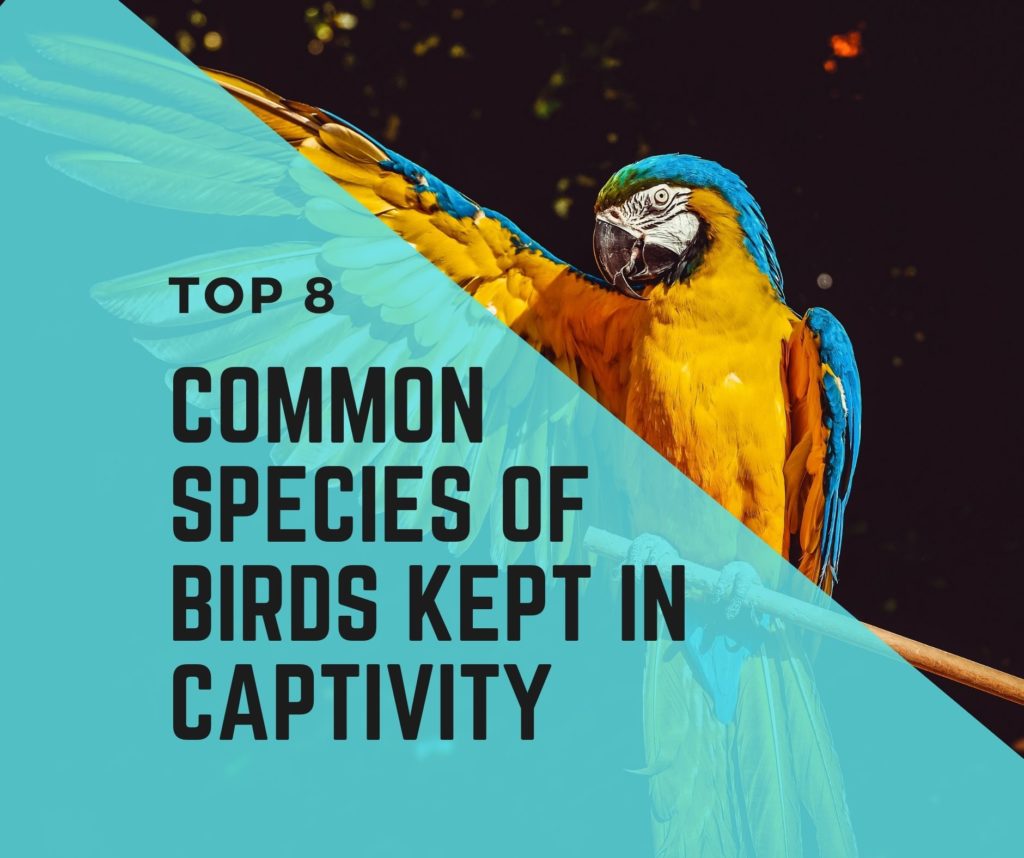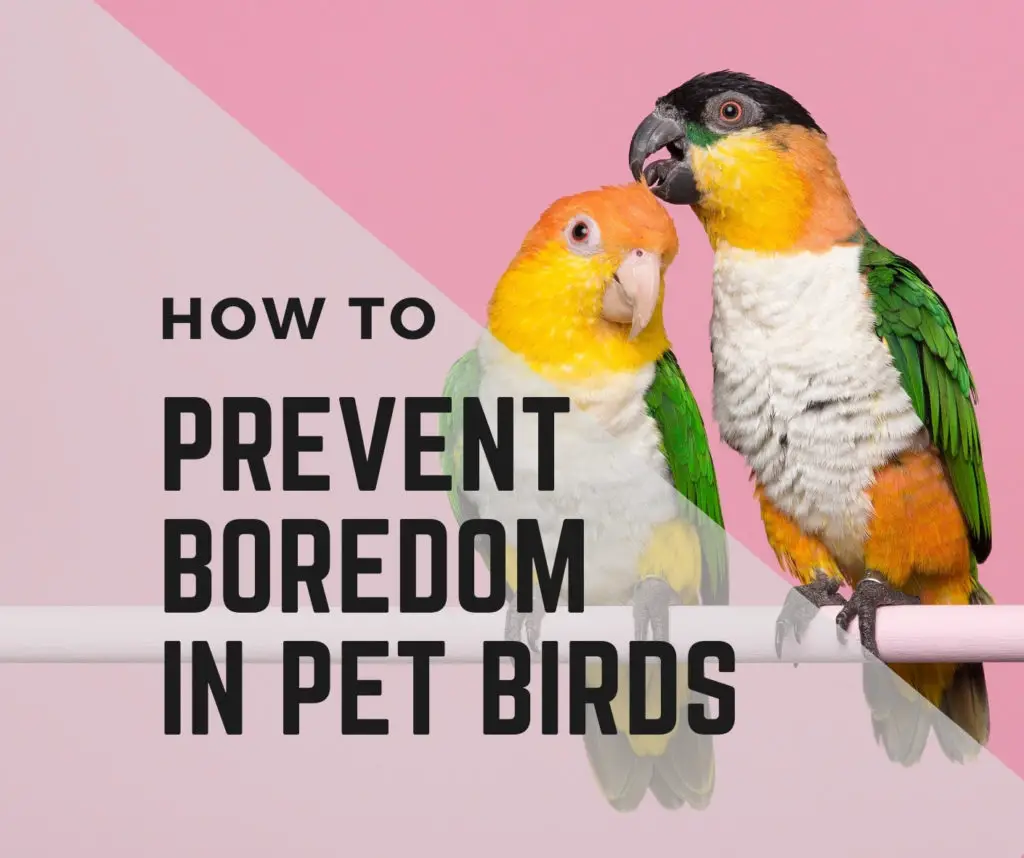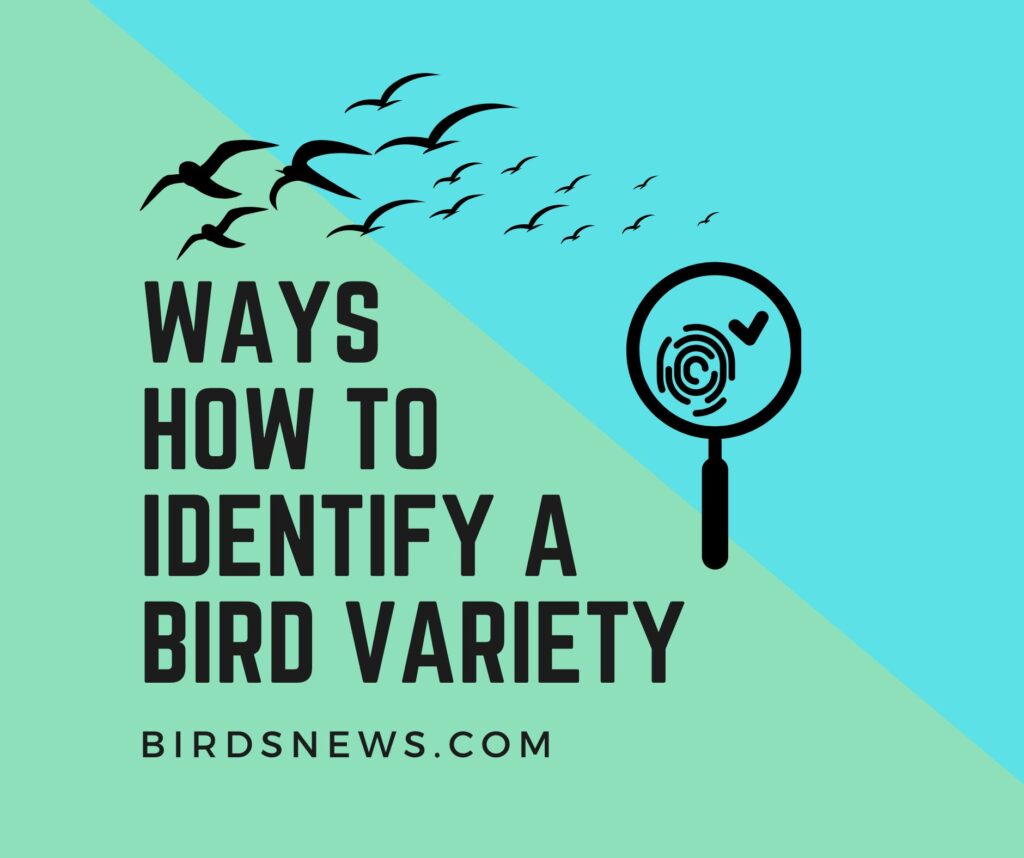Are you worried about having a cosy outdoor space for your feathered pals without all the high-tech heating? Ah, look no further since we have a birdy treat for you.
Join us in this article as we spill the beans on cold-resistant who can make it in an unheated aviary. Some birds are like winter warriors, totally cool with hanging out in an unheated aviary. From the spirited finches to the curious canaries, these little buddies have a knack for embracing the great outdoors with no thermostat needed. So, let’s dive into the cosy world of our unheated bird companions.
Birds for Unheated Aviaries- Who are the Cold-Resistant Avian Champions?
When it comes to keeping birds in unheated aviaries, confusion is obvious. However, several cold-resistant avian champions thrive well in such environments. These hardy birds are naturally adapted to handle different weather conditions without being bothered.
To add life and charm to your unheated aviary, here are a few options you can consider:
- Finches: These small and social birds are known for their vibrant colours and melodious songs. Zebra Finch and Society Finch are tough birds when it comes to handling colds. They both are, in fact, great companions that won’t mind a bit of frost.
- Canaries: Famous for their beautiful singing and cheerful personalities, Canaries make excellent pets. They are also one fine candidate for unheated aviaries since they can handle cooler temperatures. Some popular choices for unheated aviary include the American Singer Canary and the Roller Canary.
- Sparrows: Sparrows are typically found in different types of climatic conditions. Due to their diverse presence, they can easily tolerate colder temperatures. House Sparrows and White-Throated Sparrows are known for their adaptability and resilience in cold weather.
- Pigeons and Doves: Pigeons and doves, such as the Diamond Dove and the Rock Pigeon, are robust birds that can handle colder conditions.
- Quails: Quails, like the Coturnix Quail, are sturdy ground-dwellers. These birds can easily handle cooler weather. Not only that, but these birds are typically low maintenance.
Why Do Some Birds Thrive in Unheated Aviaries?
Some birds can thrive in unheated aviaries due to their uniquely evolved adaptations. It allows them to manage in unheated aviaries even when the temperature outside is cold. Their evolved adaptation allows them to handle chilly weather without needing any artificial source of heating. Here are some of the factors explaining the same:
- Natural Insulation: Birds are blessed with natural insulations. Many avians, especially cold-resistant birds, have dense feathers that act as excellent insulation. Their feathers trap warm air inside, adding a layer of protection to them against chilling weather.
- Feather Puffing: Birds can puff up their feathers to create an insulating layer of air between the feathers and their bodies. Again, as they trap warmth inside their feather, it acts as a buffer against cold.
- Metabolic Adjustments: A biological possible act, some birds have the ability to adjust their metabolic rate. Birds slow down their metabolism as the weather turns cold, and it helps them conserve energy. This further helps them manage their body temperature even when they are eating less.
- Increased Activity: Cold-resistant birds are often more active during daylight hours when temperatures are relatively warmer. Due to this, they typically succeed in staying warm.
- Roosting Behaviors: Many cold-resistant birds have specific roosting behaviours that help them stay warm at night. Birds huddle in groups, and that helps them reduce heat loss.
- Natural Habitats: Some birds naturally inhabit regions with colder climates. Their genetic makeup and natural behavioural instincts help them easily handle cold in unheated aviary.
- Gradual Acclimatization: Birds can gradually acclimate to lower temperatures over time. If they are exposed to cooler conditions since they are young, they develop a better tolerance to cold weather.
- Nutritional Strategies: Cold-resistant birds often have specific dietary requirements that help them generate more internal heat. Some food items include High-Fat Seeds, Suet, Nuts, Mealworms, Cracked Corn, Cooked Rice/ Oats and Peanut Butter.
What’s the Simple Care Routine for Unheated Aviary Birds?
Taking care of birds in an unheated aviary doesn’t have to be complicated. Here’s a simple care routine to ensure your feathered friends thrive in their outdoor habitat:
- Provide them adequate Shelter and Protection, ensuring safety from harsh winds and rain. Shelters like nesting boxes and wooden perches to find safety during cold will help.
- Offer them a balanced and varied diet that includes food that is high in energy and easily digestible. This may include high-quality seeds, suet, grains, fresh fruits, and vegetables. These food items will also help birds maintain their energy levels.
- Keep a clean and easily accessible water source in the aviary at all times. Try offering lukewarm water (if your bird likes it), and make sure water doesn’t freeze due to cold weather.
- Clean the aviary floor and perches regularly. Doing so is important to prevent the buildup of waste and bacteria.
- Choose bird species that are compatible and enjoy each other’s company. With social interactions, birds tend to keep themselves active and engaged, adding to their overall well-being.
- Add toys, perches, and branches for birds to explore and interact with. Doing so will ensure physical and mental stimulation for them.
- Regularly observe your birds for any signs of illness, such as changes in behaviour, fluffed feathers, or lethargy.
- Be aware of seasonal changes and adjust care accordingly. If the weather gets uncontrollably cold, bring the aviary inside.
- Offer appropriate nesting materials for species that breed in your aviary. A nesting box/ aviary that is well insulated with nesting material often adds a level of warmth.
However, every bird species has different requirements; make sure you research well before keeping them in the unheated aviary.
Where Can I Create the Perfect Unheated Aviary Setup?
Some birds can manage it well in an unheated aviary setup, but it involves some key considerations. Ensuring a well-designed aviary and choosing the right location is important.
Here’s where you can set up an ideal unheated aviary:
- In your backyard or garden, choose an area that receives adequate sunlight. Natural sunlight brings that warmth and is essential for birds’ health.
- While focusing on direct sunlight, ensure the aviary is in a location with natural shade provided by trees or buildings.
- Choose a spot away from heavy foot traffic and noise. By minimizing stress, you can encourage birds’ natural behaviour.
- Make sure you place the aviary in a way that minimizes exposure to strong winds. Use a fence, shrubbery, or any natural windbreak for protection.
- Ensure the aviary receives good ventilation. But yet protected from chilly air/wind getting inside.
- Consider building or protecting the aviary with strong materials to prevent predators from entering.
- Make sure you elevate the aviary slightly off the ground to prevent dampness and provide better drainage.
- Always pick a location that’s easy for you to access so you can provide care and monitor your birds daily.
- Use plants, shrubs, or trellises to create visual barriers for your birds, helping them feel secure.
- Learn your area’s climate and select appropriate bird species that can handle the local weather conditions.
- Avoid placing the aviary directly under trees where droppings and debris might fall on it. Avoid areas prone to flooding or extreme weather conditions as well.
Wrapping up…
Although some birds can make it in an unheated aviary, monitoring them during cold weather is still recommended. No matter how cold-hardy your pet bird is, sometimes harsh weather conditions can impact their physical and mental health. So make sure you always look out for them.

Hi, There and Welcome to BirdsNews.com, is here to help you learn and care about pet birds. and this blog is a journal of everything I’ve learned.

